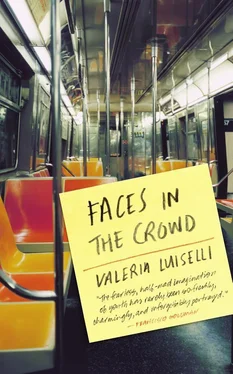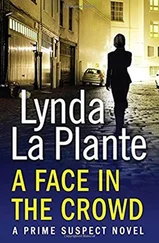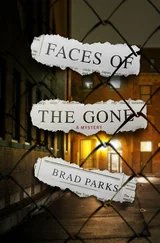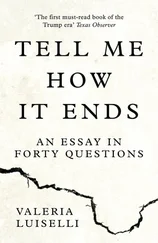I arrive a little late and the doorman lets me up to the apartment. I know that there is, though now I have a problem seeing it, a marble table in the hall with a vase of fresh flowers; there’s a long table and a room for entertaining guests. There’s a canteen of cutlery and the crockery from which I ate many meals, a wall covered in family portraits among which I do not figure — except in the scar made by a nail. There’s a piano and its illegible sheet music, trays, a uniformed maid, a bed as vast and bitter yellow as the sea at Mazatlán. There’s a cabinet full of all-important spirits.
My ex-wife has had the delicacy not to be there to greet me. She leaves me a note with instructions the maid reads out to me: the boy mustn’t eat sugar, for now; the little girl has her bath at eight o’clock. As if I didn’t know.
It’s a bright, splendid afternoon. I put the note in my pocket, grab a bottle of Colombian hard liquor, and take the children for a walk in my old neighborhood.
We want to go to the fair, Papa.
Can’t be done, kids, there’s no money.
We take the subway to the low hundreds and walk across the city from east to west. On a corner, we buy a watermelon and sodas. When we get to Morningside Park, we sit under an American sycamore, over fifteen meters high, its shadow tangled, like black people’s hair. We break the watermelon open with our hands, a stone, a stick, and our teeth; I make them eat the whole thing, sitting on our sweaters, because we’ve forgotten the special rugs their mother keeps for picnics.
We can’t eat any more watermelon, Papa, we’ll explode, they plead.
Keep eating, nothing comes free.
Nothing except the Colombian liquor, which goes down a treat. There’s something miraculous about alcohol for a man in my condition: it unshackles something, relaxes the nerves on the other side of the eyeballs, and allows what for a long time has been hidden behind the cataracts to become visible.
I make out a family a few yards away from us. They’ve got tablecloths, music, drinks, children with baseball mitts. With my slightly drunk Dutch courage, I approach the group and strike up a friendship with the head of the family. He offers me rum. My hard liquor has all gone, so I accept. I call my children, who hesitate a little before the new clan. One of the younger kids, a sturdy, cheerful girl, introduces herself: I’m Dolores, but you can call me Do. Pleased to meet you. My boy finally agrees to put on the mitt and his sister follows his example. The children play baseball in Morningside: it’s a bit like happiness.
I sit down on the edge of a stone from which I can see the window of my old room, in number 63 of the street bordering the park. I can’t actually see the window, of course, but it’s a scene I know well and can easily reconstruct. Moreover, with every swig of alcohol, a new color reappears, the lost contours of things become sharper. The reconstruction is interrupted, intermittently, by the great breasts of the wife of my new friend. I used to sit at that window writing letters to Clementina Otero; I asked her to marry me again and again. The woman’s enormous breasts dance, she dances and eats the last piece of watermelon — our only contribution to the party. My son’s made a home run, the head of the family reports to me, and we all applaud from afar. This was where I used to study English obsessively, underlining phrases in the issues of the NewYorker the landlady had put in a bookcase together with various editions of the Bible, always the New Testament. The woman bites into the watermelon and looks at me. Hey Mexican poet, she says. Everything slips and slides, and she has a black seed stuck in her cleavage. I can see the seed perfectly and my hook eye fastens on it, something tangible in my planet of shadows. I used to masturbate, I was young, looking at my naked reflection in that very window. The children throw themselves on my son and form a small mountain on top of him: Papa, he shouts from afar, Papa, they’re hitting me. She dances, she dances me. The cleavage, the seed, my present-day body leaning toward her, my swollen arms making a grab for her waist, her slaps, You madafaka, my tongue pounces on the seed, follows the soft line of the cleavage, Papa, there was a Spanish poet better than me, he was called Federico, They’re hitting me, Papa, the woman tastes of lotion, and there was a very good American poet, his name was Z, a sharp blow on the back of my neck, the paterfamilias hits me again and again with an empty bottle, You madafaka, there’s glass everywhere, thousands of tiny shards embedded in my head, everything disappears. The children play baseball and leaves of grass tickle my right ear.
*
Note (Owen to Araceli Otero): “The blacks are transparent. At night they dress in glass. I have sometimes walked through Harlem among a river of voices without a course, without a spring (cry that no one uttered). Through them all, the night is visible, transparent. . They talk like your Yucatán people. C’mon, c’mon in, misser, two dollahs. One day I went in. It’s impossible to write without music and dance.”
*
Who are you hiding from, Mama? From Papa?
No.
From Without?
From nobody.
If you want to hide, Mama, you have to find a more hidey place.
Isn’t the bed hidey?
No, the bed’s springy and a bit nuisancey when I want to run.
*
Federico and I decided to found a group inspired by our friend Z. Perhaps at his expense, but not necessarily to his detriment. It was Federico’s idea, but I was becoming his sidekick, so I not only agreed, but got fully involved and even contributed some ideas. In spite of his insistence on including Nella Larsen, we finally decided that there would be only two members and that the group would be called the Ohetivices, a word, unlike Objectivists, that Federico could pronounce. The idea was that I’d make a quick-fire translation of Z’s poems while he was reading them and then Federico would recite or sing them in public places (his theory was that everything rhymes in Andalusian, so it would be easy to keep the spirit and the impossible rhymes of Z’s poems, even, or above all, if we made some purely phonetic translations). We could, moreover, ask for a little money in exchange.
Z, of course, knew nothing of our plans, and thought we wanted just to hear him, so when we asked him to do another reading of the verses from That we’d liked so much, he came along to College Walk thoroughly content and well dressed. This time he explained that in the extract he was trying to make objects speak. I explained to Federico:
He says, here, objects are going to speak.
How can objects speak?
Federico is asking how come do things speak.
Z gave us a slightly paternal look and said, with absolute solemnity: I’m trying to make the table eat grass, although I can’t make it eat grass.
What? asked Federico.
He says shut up and sit down on the grass.
Z took out his papers and began to read. The poem began with the rather strange verb behoove and had a rhyme system that seemed at odds with its meaning, whatever that actually was. I think that, more than what his poems meant, it was interesting to see what they did . I tried my best to translate for Federico: At the beginning he seems to be talking about Hoovers, those machines for vacuuming the floor that make an infernal noise. But he might’ve said “behoover,” so it’s to do with the action of vacuuming, you know how English is always making the bloody nouns into verbs. So the objects ask to be vacuumed by a Hoover, or something like that. And after that there’s a bit about whiskying — another damned noun-verb. And then there’s some kind of biblical image about infinite locusts. Or maybe it’s locos. Then it goes: Damn (or perhaps Palm) and something about weed (or wheel). And the line ends: this accordion to fuck us. (Probably because he’d misunderstood me, that last bit excited Federico, who was taking careful notes for the next meeting of the Ohetivices.) I continued: The last four lines are the ones he read us before. You know, about the way time changes us. They’re magnificent. I’d better try to translate them on paper and let you know. In the meanwhile, you get down all the important words and then we’ll see what we can do.
Читать дальше











